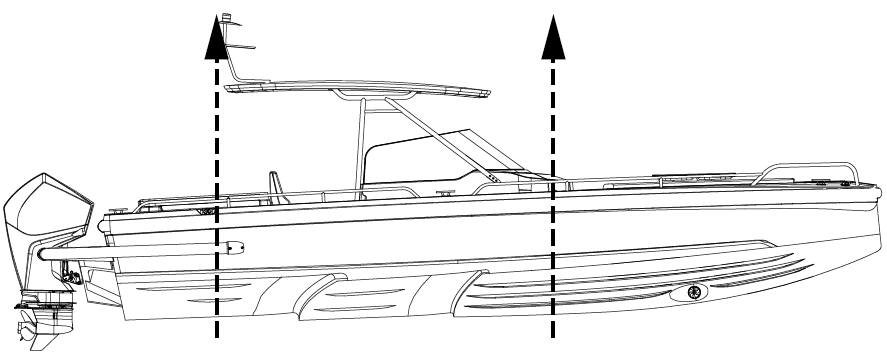Commission only a reputable lifting company or a boatyard with sufficient lifting capacity to lift the boat. Make sure the company has full insurance cover, in case of any damages.
Risk of serious injury or death by falling load.
-
Do not stay under the boat when it is hanging in the crane.
Lift slings may slip on the hull. When appropriate, tie the slings together before lifting.
The position of the slings may need to be adjusted depending on how the boat is loaded.
Note the location of the log transducer to avoid damaging it.
-
Protect the hull sides well to avoid damages.
The lifting beam must be exactly the same width as the boat. Always take great precautions near and around the boat when lifting.
The location of the lift straps is indicated in the figure.

Before operating any lifting equipment:
-
Check and determine applicability of federal, state, or local requirements.
-
Follow the lift equipment manufacturer’s requirements and recommendations.
-
Check the boat's lift points, weight and other information.
-
Straddle lift operation is a highly technical area that requires trained and experienced operators.
During lifting:
-
Ensure that all hull penetrations are closed or secure.
-
Check the boat for bilge water before lifting.
Excessive quantities of bilge water can shift, changing the balance of the load.
-
Check for thru-hull appendages such as knot meters and stabilizers, rub, spray, and splash rails, so that they are not damaged by the lifting equipment.
-
Check the hull structure to locate shafts, rudders, struts, and the forward and aft ends of any keels.
-
Check the hull’s structural configuration, including the location of bulkheads, stringers, engines, and tanks.
-
Check bilges for water ingress following launch.
-
Transport the boat as close to the ground as practicable.